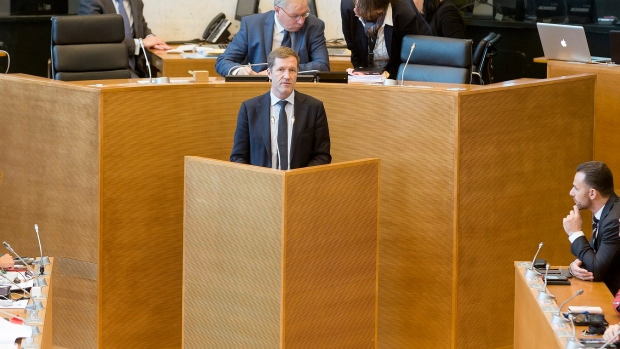Oct 28, 2016
Belgium's Walloon parliament votes in favour of CETA deal
, Reuters

BRUSSELS - The parliament of Belgium's French-speaking region of Wallonia voted in favor of a planned EU-Canada trade agreement on Friday, ending its opposition that threatened to destroy the entire deal.
Lawmakers of Wallonia, which led Belgian opposition to the Comprehensive Economic and Trade Agreement (CETA), 58 voted for and 5 against, after Belgian politicians agreed to an addendum on Thursday to allay concerns.
The parliaments of Brussels and the French-speaking community will vote later on Friday. Both votes are expected to mirror that of Wallonia, given similar Socialist-led coalitions are in control.
All 28 EU governments back CETA, which supporters say could increase trade by 20 per cent, but Belgium's central government had been prevented from giving its consent because it needed approval from sub-federal authorities.
Wallonia's Socialist premier Paul Magnette, who had become a hero to protesters across Europe, said Belgian negotiations had led to a deal he could live with.
"The amended and corrected CETA is more just than the old CETA. It offers more guarantees and it is what I will defend," Magnette told a session.
The Belgian addendum addresses fears that a system to protect foreign investors could strengthen multinationals and provides a safeguard clause for farmers.
"With this saga, which I must say made some noise, everybody in Europe knows the Walloon parliament exists," he said.
The Belgian dispute over CETA reflects a split in the country between a richer Dutch-speaking north and a largely French-speaking south that has struggled to cope with the decline of its coal and steel industries.
The federal government has just one party from the south, Prime Minister Charles Michel's MR liberals, the Socialists' arch-enemies.
But not everyone in Wallonia agreed with Magnette.
"It is clear that the text of CETA stays the same: the DNA of CETA is one of deregulation and it puts nations in competition at an unprecedented level," said Frederic Gillot of PTB-GO, a hard left party that is winning voters from the Socialists.
European leaders still have to confirm a date for CETA to be signed.
CETA could partially enter force next year, some eight years after talks were launched, as long as the European Parliament also backs it. It would bring in tariff reductions before national and regional parliaments complete ratification.
CETA opposition is part of a growing popular backlash in the West against globalization, with fiercest protests against a proposed EU-U.S. deal, best known by its acronym TTIP.
Protesters say TTIP and CETA would strengthen multinationals and degrade food, environmental and labor standards.
Magnette on Friday said he had no doubt about whether the EU should reach an agreement with the United States.
"With this CETA, TTIP is dead and buried," Magnette said.

